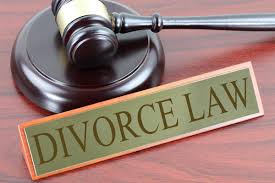Debt Relief Options: Strategies for Managing Debt Affordably
4 min read
Debt relief can be a significant source of stress and financial burden for many individuals and families. Fortunately, there are various debt relief options available to help manage debt more effectively and affordably. Whether you’re struggling with credit card debt, medical bills, student loans, or other forms of debt, understanding your options and taking proactive steps can lead to financial freedom and peace of mind. In this guide, we’ll explore debt relief strategies to help you tackle debt and regain control of your finances.
Debt Consolidation
Debt consolidation involves combining multiple debts into a single loan with a lower interest rate and more favorable terms. This can simplify your finances by consolidating multiple payments into one, making it easier to manage and potentially reducing your monthly payments. Debt consolidation options include personal loans, balance transfer credit cards, and home equity loans or lines of credit. By consolidating your debts, you may be able to save money on interest and pay off your debt more efficiently.
Debt Management Plans
A debt management plan (DMP) is a structured repayment program administered by a credit counseling agency. Under a DMP, you make monthly payments to the credit counseling agency, which then distributes the funds to your creditors on your behalf. The agency may also negotiate with creditors to lower interest rates or waive fees to help you pay off your debt more quickly. DMPs are designed to help individuals repay their debts in full within a set timeframe while making affordable monthly payments based on their financial situation.
Explore debt relief options with our guide and discover how “Specific Issue Orders” can provide targeted solutions to your financial challenges.
Debt Settlement
Debt settlement involves negotiating with creditors to settle your debts for less than the full amount owed. This typically requires making a lump sum payment or agreeing to a structured repayment plan to satisfy the debt. Debt settlement can be a viable option for individuals facing financial hardship or unable to repay their debts in full. However, it may have negative consequences for your credit score and financial future, so it’s essential to carefully consider the risks and potential drawbacks before pursuing this option.
Bankruptcy
Bankruptcy is a legal process that allows individuals and businesses to discharge or restructure their debts under the supervision of a bankruptcy court. Chapter 7 bankruptcy involves liquidating assets to repay creditors, while Chapter 13 bankruptcy involves creating a repayment plan to repay debts over time. While bankruptcy can provide relief from overwhelming debt and a fresh start financially, it should be considered a last resort due to its long-term consequences on your credit and financial future.
Financial Counseling and Education
Seeking the guidance of a qualified financial counselor or educator can provide valuable insight and support in managing debt effectively. A financial counselor can help you develop a budget, prioritize debt repayment, and create a plan to achieve your financial goals. Additionally, financial education programs can provide valuable resources and information on topics such as budgeting, saving, credit management, and debt reduction strategies.
Conclusion
Managing debt can be challenging, but it’s essential to explore your options and take proactive steps to regain control of your finances. Whether you choose debt consolidation, a debt management plan, debt settlement, bankruptcy, or a combination of strategies, there are resources and support available to help you achieve financial freedom and peace of mind. By understanding your options and taking decisive action, you can overcome debt and build a brighter financial future for yourself and your family.
FAQs
- Will debt relief affect my credit score?
- Debt relief options such as debt consolidation and debt management plans may have temporary effects on your credit score, but they can ultimately help you improve your credit by reducing your overall debt and making timely payments.
- How long does it take to pay off debt using debt consolidation or a debt management plan?
- The time it takes to pay off debt depends on factors such as the amount of debt owed, the interest rates, and the monthly payments. Debt consolidation and debt management plans typically have fixed repayment terms ranging from a few years to five years or more.
- Can I negotiate debt settlement on my own, or do I need a debt settlement company?
- While it’s possible to negotiate debt settlement on your own, working with a reputable debt settlement company can provide expertise and guidance in navigating the negotiation process and securing favorable settlement terms.
- Will creditors continue to contact me if I enroll in a debt management plan?
- Once you enroll in a debt management plan, creditors typically agree to stop contacting you directly and instead communicate with the credit counseling agency administering the plan. This can provide relief from collection calls and harassment.
- Is bankruptcy the only option for dealing with overwhelming debt?
- No, bankruptcy is not the only option for managing debt. There are various alternatives, including debt consolidation, debt management plans, debt settlement, and financial counseling, that may be suitable depending on your financial situation and goals.






